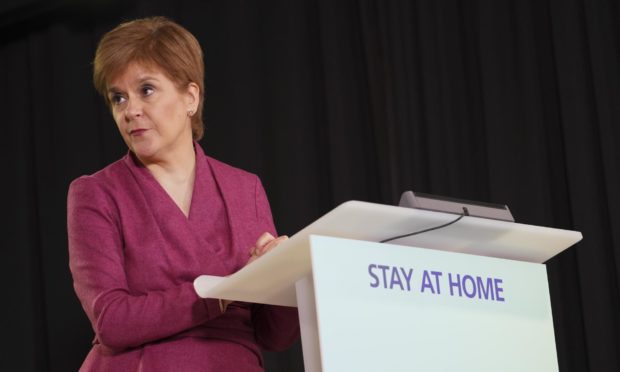An Angus mother has said remote learning is “unsustainable” for rural families due poor internet connectivity.
Microsoft issues delayed learning for thousands of pupils yesterday and it could take several weeks for some technical faults to be resolved, according to Education Scotland.
One bug identified in December has missing join buttons for many users and has delayed chat updates.
But for Ruth White, who lives in Glen Prosen in rural Angus, yesterday’s service problems were just the tip of the iceberg.
Connection issues
Her three sons, who are in S3 and S4 at Webster’s High School and P6 at Northmuir Primary, were ready for their first day of remote learning only to be denied access.
The family have battled with poor internet since moving to the Glens in 2012 and say they are lucky to reach a connection speed of 1Mbps.
She said: “Even if Microsoft Teams was working perfectly across the country, we would still be struggling here.
“The boys weren’t asked to be online during the last lockdown. They just had to go on and download their assignments and complete and submit them.
“This time around they want to run a normal timetable online and they can log in and the teacher will be there during that time to teach them.
“That is impossible here because it glitches and stutters the whole time. It’s completely unsustainable to continue to try and work this way.”
Ruth said she is particularly concerned her son who is in S4 will not be able to interact with his teachers.
Even if Microsoft Teams was working perfectly across the country, we would still be struggling here.”
“The school are very understanding and have reassured us he will not be badly affected as a result, as assignments can be downloaded and completed separately,” she said.
“But it may well be that kids living in Kirriemuir will get to have whole periods interacting with their teacher but that’s just not something that’s available to us.”
Ruth also said balancing home-learning with working from home as an estate administrator for the Glenprosen Estate was made impossible by the Teams outage.
She added: “Yesterday’s fiasco was also hugely frustrating because I’m trying to work from home as well.
“My son who is in S3 couldn’t download any of his assignments so yesterday was a completely wasted day in terms of school work.
“My eldest managed to download a couple of assignments before it all went pear-shaped.
“He worked on those and completed them within a few hours. There’s a real concern about the quality of education they’re getting in lockdown and I think that demonstrates it perfectly.”
An Angus Council spokesperson said “Where families have indicated that they have no internet connection we have been able to provide Mifi portable internet connections.
“Families who have specific difficulties with accessing online learning should liaise directly with their school in the first instance. Each school will have its own approach to supporting children and young people in these circumstances.”
At her daily briefing on Tuesday, First Minister Nicola Sturgeon said the Microsoft issues were not specific to Glow and there were 1.3 million log-ins to the Education Scotland platform on Monday.
A Scottish Government spokesperson said: “Although all legal and regulatory responsibility for ensuring access to digital infrastructure is the responsibility of UK Ministers, the Scottish Government is committed to tackling gaps in broadband coverage in Scotland, to increasing digital participation and ensuring that all of Scotland is able to enjoy the social, cultural and economic benefits of the internet.
“Building on the success of the Digital Scotland Superfast Broadband roll-out, our Reaching 100% programme (R100) will ensure that everyone can access superfast broadband. Our 100% commitment will be delivered through the £600 million R100 contracts, our Scottish Broadband Voucher Scheme and commercial roll-out. This will ensure that everyone can benefit from fast and reliable digital connectivity.
“We are focussed on ensuring pupils continue to benefit from a high quality education even during lockdown and have invested £25 million to address digital exclusion.”











